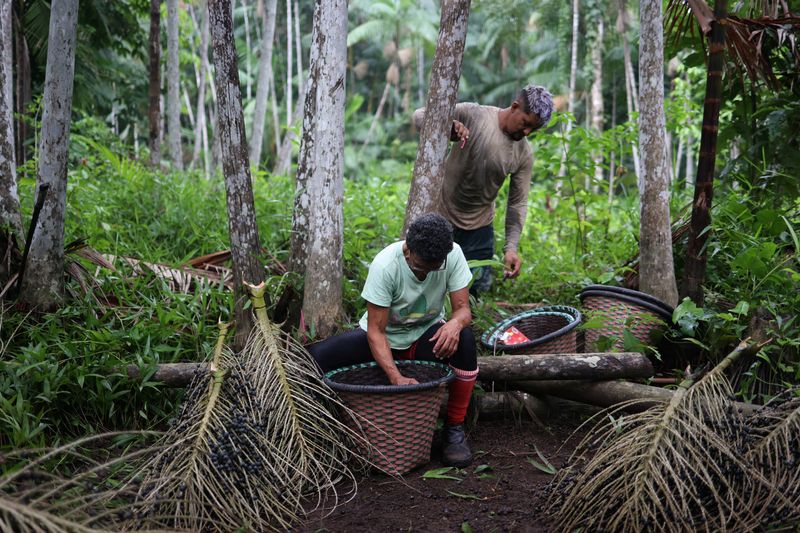By Isabel Teles
SAO PAULO (Reuters) – In the tiny community of Ilha da Jussara, at the northern tip of the Brazilian Amazon (NASDAQ:), growing acai berries – a superfood known for its nutritional benefits – is a major source of income.
Production has grown around 50% in the last decade, driven by a dozen or so women in the village who fought to secure sources of credit.
“At first, the husbands took care of the product, of the production,” said Edna dos Anjos Nascimento Siqueira, known as Bezinha, as she stripped the small dark fruit from acai palm tree branches and placed them in a basket. “Then we, the women, started to move.”
Bezinha, now 60, grew up following her father climbing the acai berry trees of Ilha da Jussara to harvest the tart fruit, used globally in juices, cosmetics and supplements.
She was the first woman to participate in meetings to discuss funding to grow the village business.
According to Emater, a government sustainable development agency, the involvement of women in such small-scale businesses has grown fast in rural Brazil.
In 2021, almost half of the rural credit from a federal program overseen by Emater that supports smallholder farmers benefited female producers, it said.
The initial investment in projects like the acai of Ilha da Jussara is around 20,000 reais ($3,300), said Lucival Solim Chavez, an agronomist at Emater.
“After that, the land is financially self-sustaining,” he said.
More widely, acai berry production in Brazil grew 15% between 2020 and 2023, according to government statistics. Para state, where Ilha da Jussara is located, accounts for 94% of the country’s output, and is a top exporter of the fruit to food and cosmetics companies around the world.
In the community around Ilha da Jussara, some 200 people are dedicated to the production of organic acai. Combined sales from communities in the area total approximately 1.37 million reais ($225,000) a year – over 85% of their income, according to government numbers.
During the harvest, families in the village can make fourfold the region’s minimum wage.

“We’ve achieved a lot,” Bezinha said. “My friends that are part of it… they have their own little house, their own little stove, their own bathroom. For us it has been a big thing.”
($1 = 6.0559 reais)

